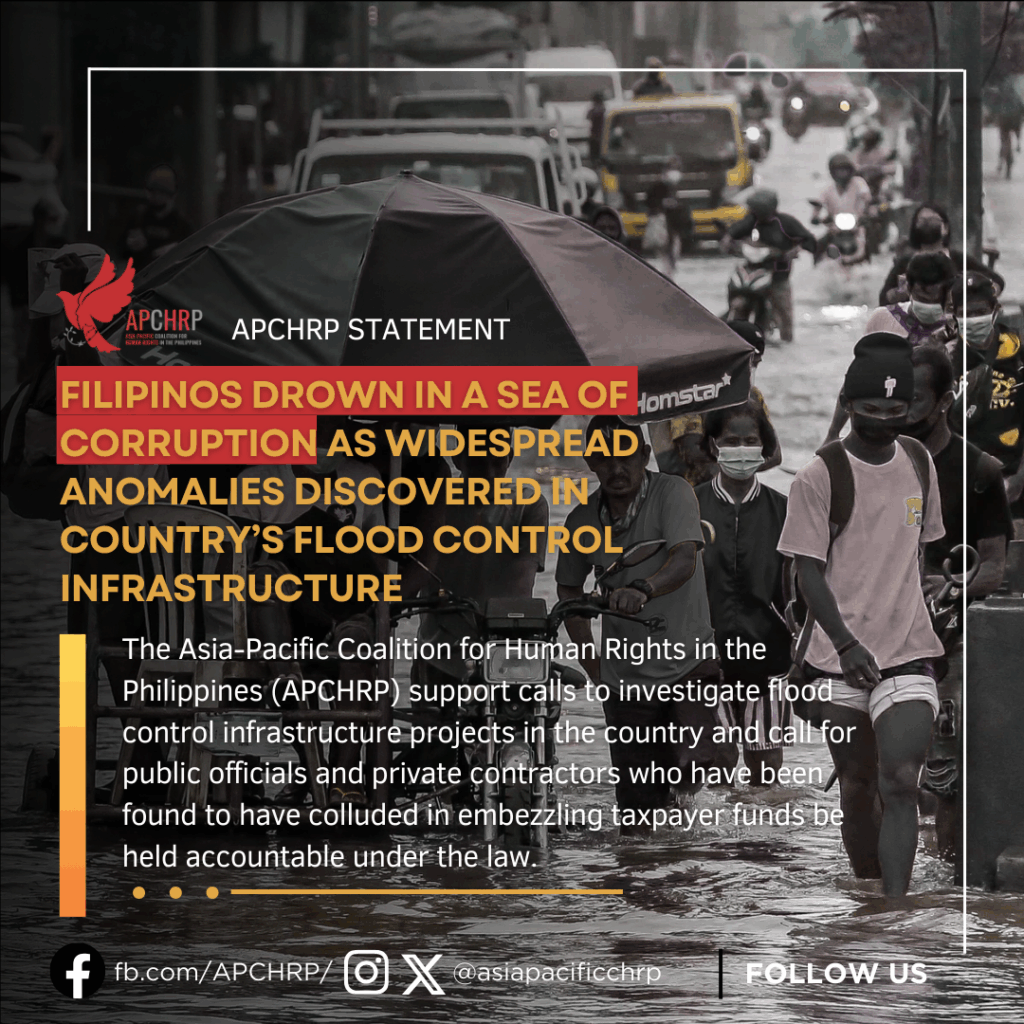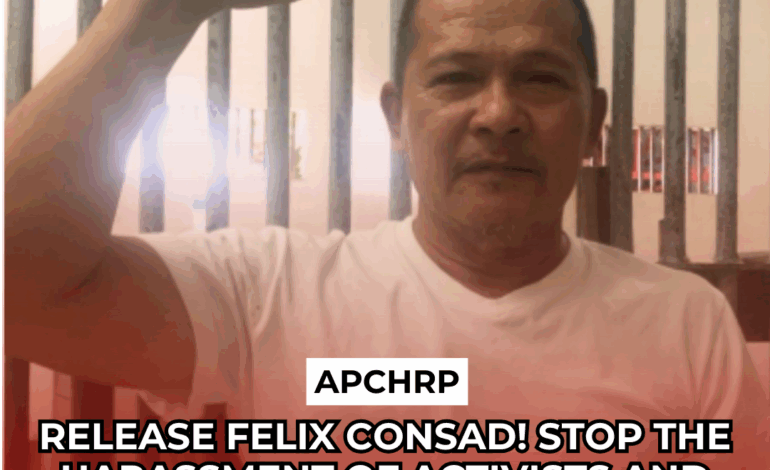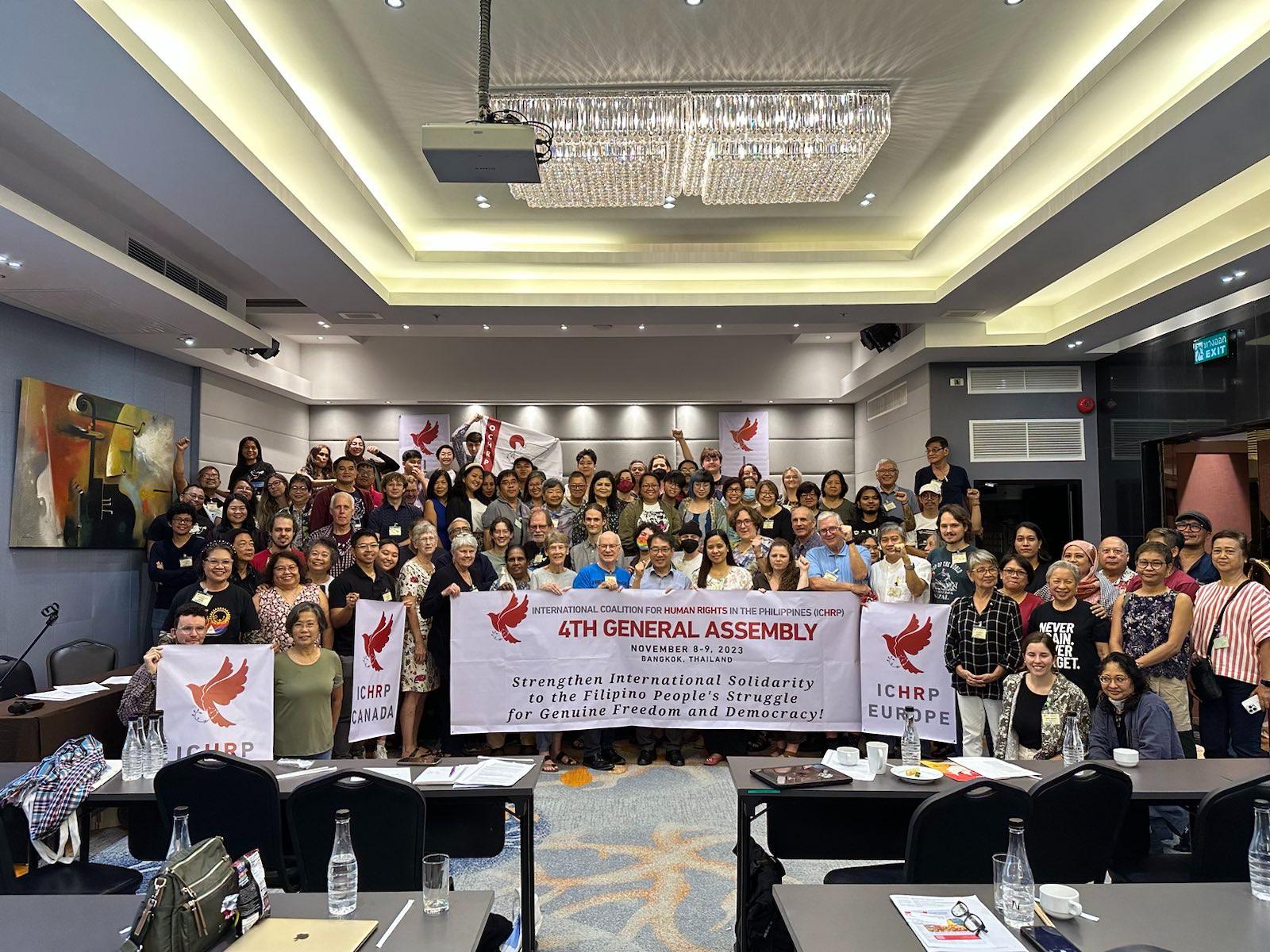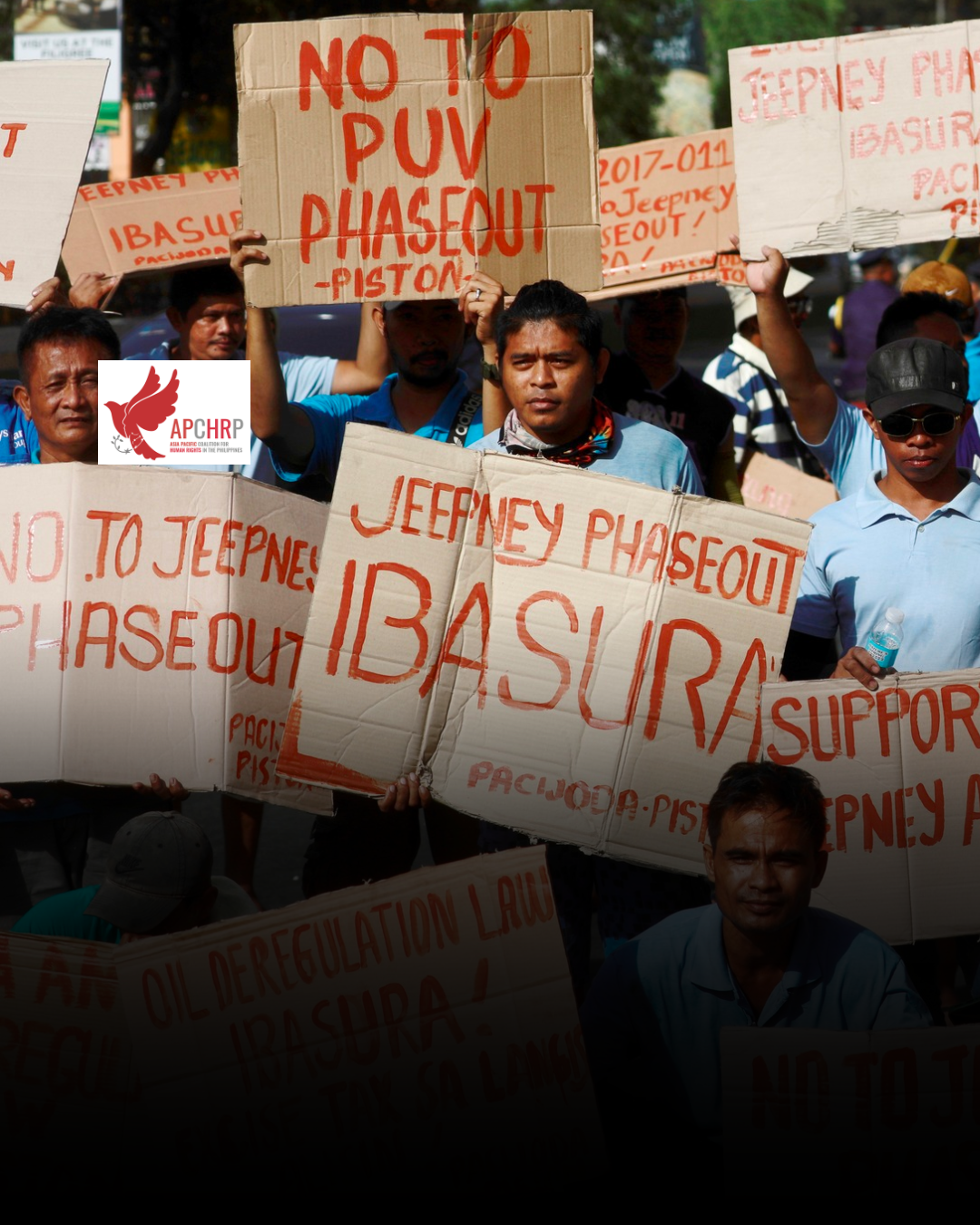APCHRP: FILIPINOS DROWN IN A SEA OF CORRUPTION AS WIDESPREAD ANOMALIES DISCOVERED IN COUNTRY’S FLOOD CONTROL INFRASTRUCTURE
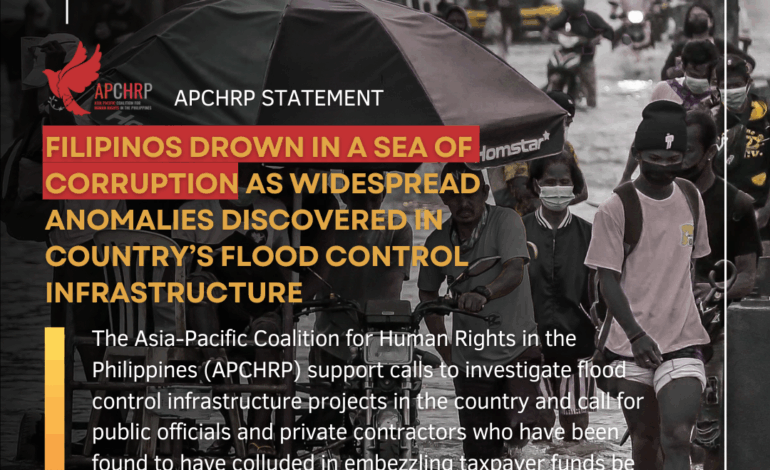
Situated in the Pacific Ocean’s “Typhoon Belt”, the Philippines is no stranger to typhoons. Each year the country sees an average of 20 tropical cyclones entering its area of responsibility, which translates to widespread flooding in its towns and cities that result in lost economic opportunities and often, fatalities.
Flood control infrastructure is therefore a priority for the country, but recently these structures were found to be inadequate, defective and in some cases – even non-existent – despite billions of pesos in taxpayer funding spent on such projects. As the Philippines reeled from Typhoon Crising (International name: Wipha) in July, a much larger systematic problem was uncovered – bureaucratic corruption in its flood control infrastructure projects.
An investigation into the 10,000 flood control projects done in the country in the last three years exposed that ₱10 billion worth of projects went to only fifteen contracting firms. This represented a small number of over 2,409 accredited contractors existing in the country, which raised suspicions how such a small cohort cornered over 20 per cent of the total amount the government spent on flood control infrastructure. Some 64 percent of all flood control projects under the Marcos Jr. administration lacked clear project descriptions or were in different locations but had the exact contract cost as well.
Initial scrutiny into these public infrastructure works also showed that many of these top contractors had links to powerful officials in government. One example is Ako Bicol party-list Rep. Zaldy Co, who co-founded Sunwest Construction and Development Corporation (SCDC) – which ranked 8th among the top 15 recipients of flood control contracts under the present administration. From 2016 to 2024, Sunwest secured over ₱38 billion in government projects, of which ₱7 billion were in flood control. Co’s colleague in the House of Representatives, Edwin Gardiola, party-list lawmaker for Construction Workers Solidarity (CWS), owns JSG Construction which has also bagged numerous public works projects under successive Philippine presidents. During the course of the investigation into lawmakers and their links to construction firms involved in government projects, it was discovered that this lawmaker owned a mansion in Newport Beach, California which was valued by Homes.com at ₱1.06 billion (US$19 million). How could a lawmaker from the Philippines afford such an opulent residence in one of the most posh neighborhoods in the United States? Moreso, Gardiola belongs to a party-list that purportedly represents the plight of construction workers in the country. These workers get paid a pittance in the Philippines, in addition to being subjected to perilous work conditions as well. The life of Rep. Gardiola is definitely not representative of the constituency he claims to stand for.
It is not only the so-called “Lower Chamber” that have such brazen conflicts of interest, but the Senate too. No less than Senate President Chiz Escudero himself, counts Lawrence Lubiano – president of Centerways Construction and Development Inc. – as one of his top campaign donors for his 2022 senate run. Centerways bagged the seventh highest number of flood control projects under the present administration, and its president, Lubiano, donated ₱30 million to Escudero’s campaign kit. His deputy, Senate Majority leader Joel Villanueva, was also revealed to have received ₱20 million in campaign donations from New San Jose Builders Inc. (NSJBI), another contracting firm which had government contracts at one point. Sen. Bong Go’s father, Desiderio Go, owns CLTG Builders, a top contractor for government projects in Davao — the bailiwick of the Duterte dynasty. CLTG won ₱1.85 billion worth of contracts, mostly with the Department of Public Works and Highways (DPWH), according to a 2018 Philippine Center for Investigative Journalism (PCIJ) report.
While these contractors rake in large sums of public funds, the flood control projects Filipinos have to deal with are inadequate to prevent, or even mitigate, flooding. A dike in Naujan, Oriental Mindoro collapsed recently and was discovered to have no steel reinforcements installed – making it substandard. In an even more egregious example, a riverwall in Baliuag, Bulacan was marked as “completed” by the DPWH only to be found out that it had not been erected at all during an inspection. Not a single day’s work went into the said riverwall despite the project costing ₱55 million. It has only been a few weeks since a full-scale investigation was ordered by President Bongbong Marcos Jr. during his State of the Nation Address (SONA), but we are already seeing mind-boggling examples of corruption in the country.
Filipinos deserve better. Every year, commuters wade through floodwaters or risk being stranded in their homes or workplaces due to flooding in cities. Farmers also lose their livelihood because of the adverse weather conditions, which then have corresponding effects on food prices in the country. School learners miss their classes and in some cases, even lose their entire classrooms due to damage from typhoons. Ordinary Filipinos suffer while a small number from the ruling class live lavish lives funded by the taxpayer funds they misappropriate from government projects.
The Asia-Pacific Coalition for Human Rights in the Philippines (APCHRP) support calls to investigate flood control infrastructure projects in the country and call for public officials and private contractors who have been found to have colluded in embezzling taxpayer funds be held accountable under the law. There should be no sacred cows in this investigation, just as how the adverse effects of typhoons indiscriminately affect ordinary Filipinos across the country. It is time to hold the government to account and ensure they truly serve the people.
Reference: Sr. Patricia Fox
APCHRP SPOKESPERSON
